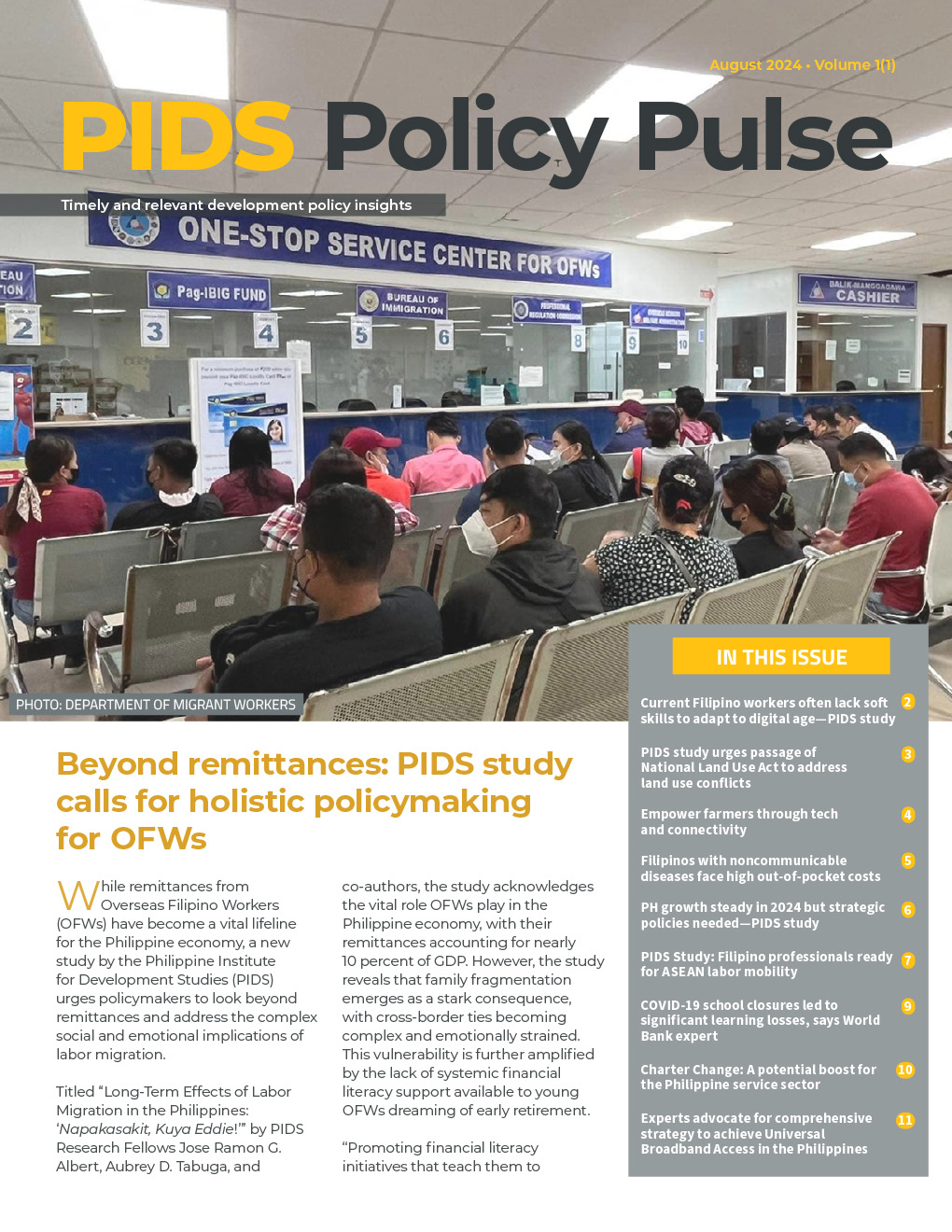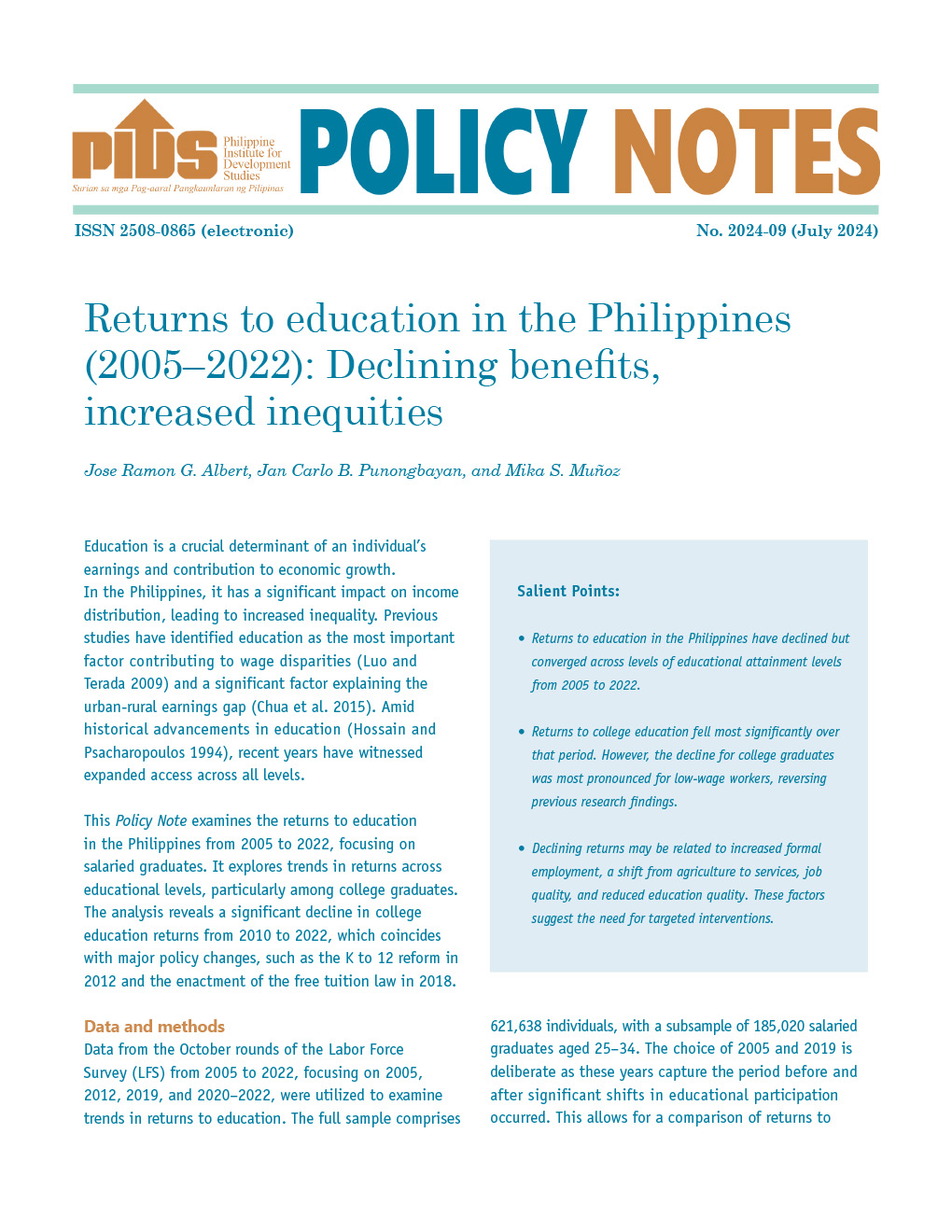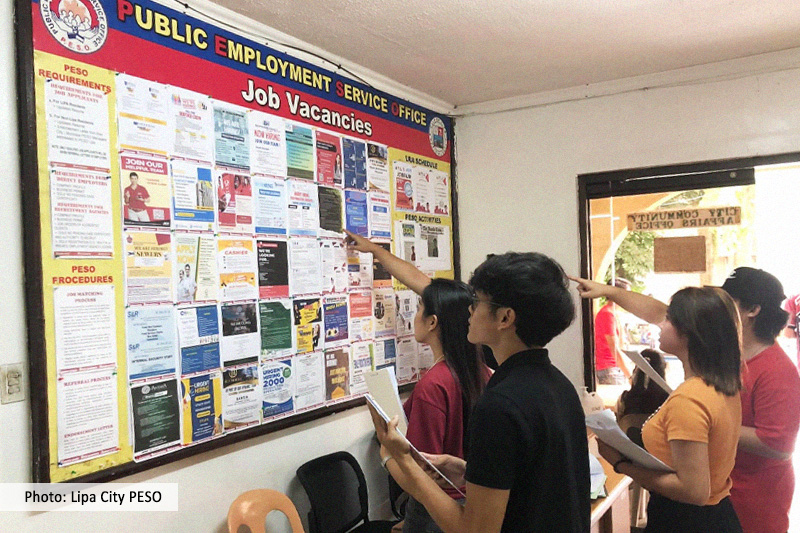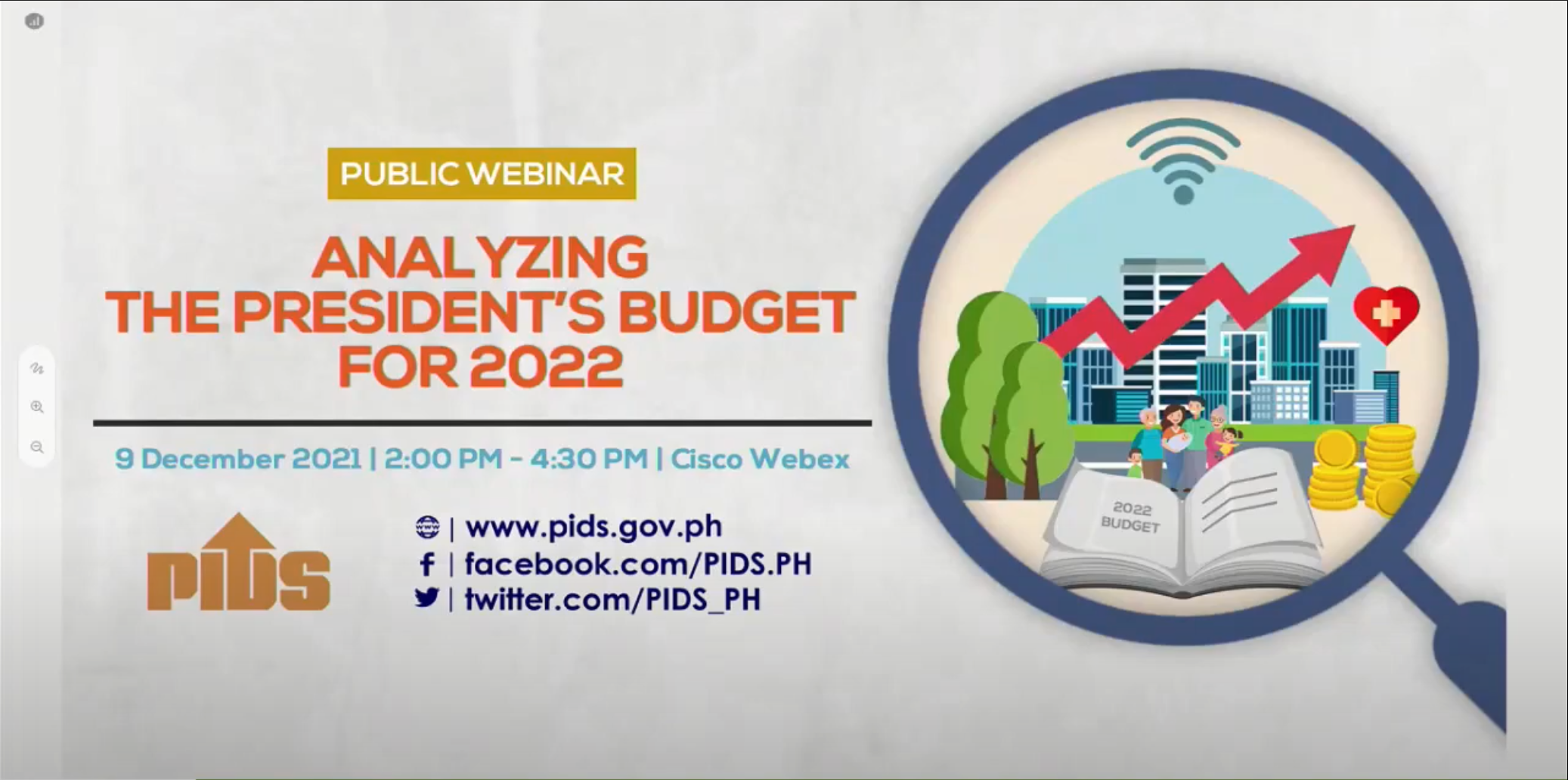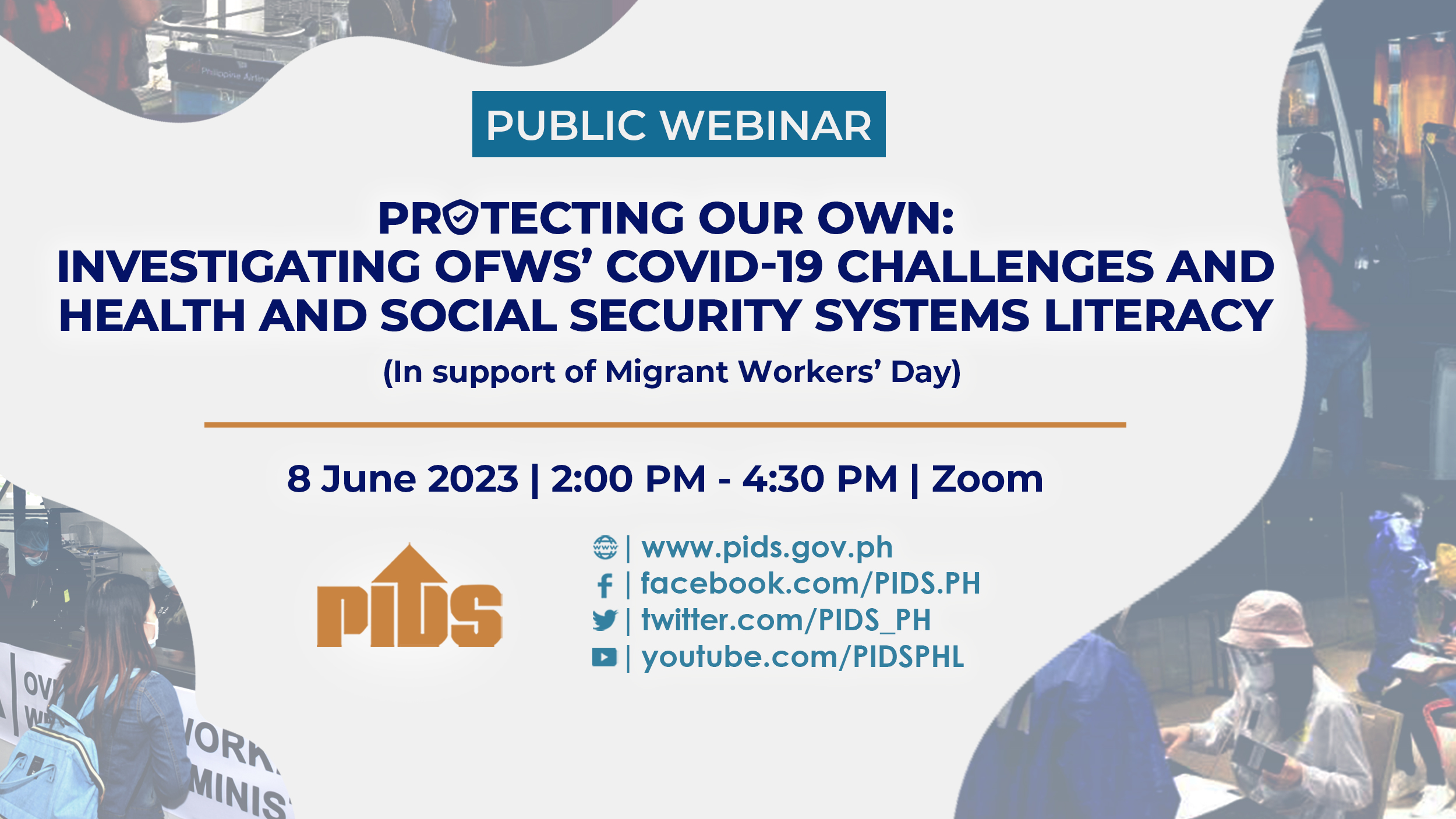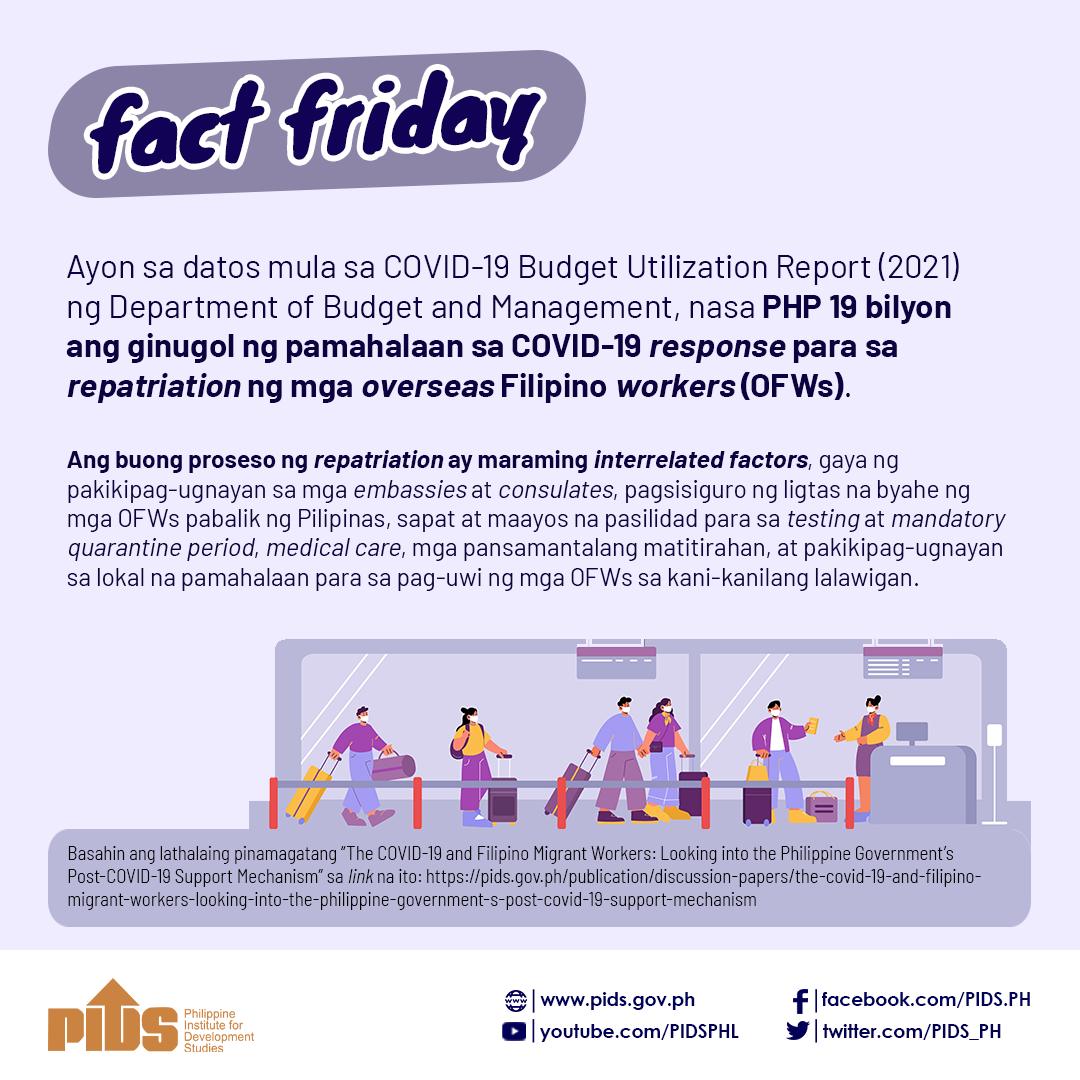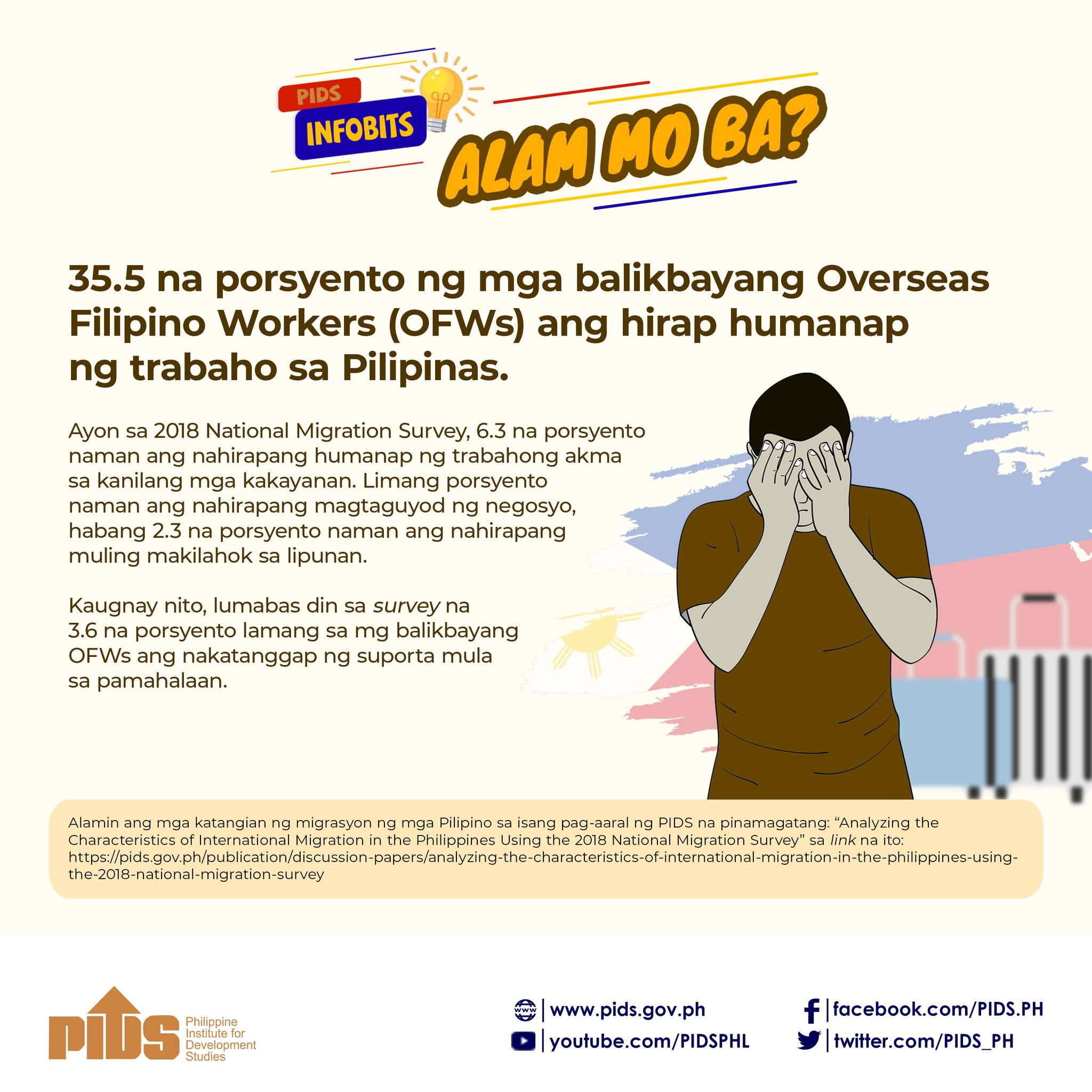In a discussion paper, state-run think tank Philippine Institute for Development Studies said the return of overseas Filipino workers since last year should be a reminder for the government to improve social protection and resilient sources of livelihood for OFWs.
MANILA, Philippines — Overseas Filipino workers (OFWs) identified graft and corruption as part of their “priority issues” for the upcoming presidential elections, a study by De La Salle University professor Ma. Divina Gracia Roldan showed.
Roldan said “corruption ranks first, this is seen as the main problem in the country.”
“The participants expressed that if corruption is eliminated, there will be more budget for health, education and livelihood programs, poverty will be addressed. They also think that the country will develop and there will be no need for them to go abroad to work,” Roldan said in a webinar organized by the La Salle Institute of Governance on Friday.
She said most of the study participants source their information from online news and social media, family and friends, and online OFW communities.
The other “priority issues” identified by survey respondents were pandemic response and health, employment opportunities, poverty, and education. However, voting remains to be an independent decision.
“These priority issues mentioned by the participants are all connected to their main priorities which are family, work, health and safety, and financial security,” Roldan said.
Profile of respondents
She conducted online interviews with 118 overseas Filipino workers from January to September last year. Majority or 62.5% of her respondents were women, while 37.5% were men.
Roldan interviewed healthcare professionals, managers, office workers, seafarers, engineers, and domestic helpers aged 25 to 54 years with at least two to 10 years of work experience abroad.
She interviewed OFWs from Europe, the Middle East and North Africa, Central Asia, Asia, Asia Pacific, Latin America and North America.
However, the “top locations” of her survey respondents were California in the United States, Dubai, Doha in Qatar, Hong Kong, Riyadh in Saudi Arabia, and Singapore. Roldan said this “correspond(s) to the top destinations with high overseas voter turnout in the past elections.”
Ideal presidential qualities
“Integrity is the main trait that the OFW voter looks for in a presidential aspirant, one who is not corrupt and sincere in serving the people. Trustworthiness and honestly are also given weight,” Roldan said.
Respondents also wanted a candidate that is “tapat sa bayan,” “may malasakit,” competent and compassionate, God-fearing, with vision and conviction, and someone who is a good communicator and someone “who Filipinos can be proud of.”
Some referenced Singapore Prime Minister Lee Hsien Loong and New Zealand’s Jacinda Ardern.
“It is interesting that a few participants prefer the strongman leadership style like that of President Rodrigo Duterte as one participant said, he wants the next president to be someone like Duterte,” Roldan said.
Citing a survey participant, the hotel worker from Cambodia wants someone like Duterte: “May takot sa kanya, sinusunod siya. ‘Pag sinabi niya, gagawin niya.’”
(People are scared of him, they follow him. Whatever he says he’ll do, he’ll follow through.)
Voting 'an opportunity to change as a country'
The majority or 69% of her 118 survey participants will be voting in the upcoming elections.
“They see the elections as important to bring about change, they see voting as a right, and an opportunity to change as a country,” Roldan said.
Preferred means of voting
Over 1.5 million Filipinos abroad are registered to vote in the upcoming 2022 polls.
Asked if OFW votes are “gamechangers,” retired Commission on Elections Commissioner Rowena Guanzon disagreed.
“‘Di naman sila game changer, eh 1 million sila eh. Kaya lang, pag senador ka, it will matter. Pero hindi, kasi ang mga presidential candidates mga more than a billion, sa senator it will matter,” Guanzon said.
(They’re not a game changer, that’s 1 million. However, if you’re [running for the senate], it will matter. But no, because presidential candidates have more than a billion votes, for senators, it will matter.)
MANILA, Philippines — Overseas Filipino workers (OFWs) identified graft and corruption as part of their “priority issues” for the upcoming presidential elections, a study by De La Salle University professor Ma. Divina Gracia Roldan showed.
Roldan said “corruption ranks first, this is seen as the main problem in the country.”
“The participants expressed that if corruption is eliminated, there will be more budget for health, education and livelihood programs, poverty will be addressed. They also think that the country will develop and there will be no need for them to go abroad to work,” Roldan said in a webinar organized by the La Salle Institute of Governance on Friday.
She said most of the study participants source their information from online news and social media, family and friends, and online OFW communities.
The other “priority issues” identified by survey respondents were pandemic response and health, employment opportunities, poverty, and education. However, voting remains to be an independent decision.
“These priority issues mentioned by the participants are all connected to their main priorities which are family, work, health and safety, and financial security,” Roldan said.
Profile of respondents
She conducted online interviews with 118 overseas Filipino workers from January to September last year. Majority or 62.5% of her respondents were women, while 37.5% were men.
Roldan interviewed healthcare professionals, managers, office workers, seafarers, engineers, and domestic helpers aged 25 to 54 years with at least two to 10 years of work experience abroad.
She interviewed OFWs from Europe, the Middle East and North Africa, Central Asia, Asia, Asia Pacific, Latin America and North America.
However, the “top locations” of her survey respondents were California in the United States, Dubai, Doha in Qatar, Hong Kong, Riyadh in Saudi Arabia, and Singapore. Roldan said this “correspond(s) to the top destinations with high overseas voter turnout in the past elections.”
Ideal presidential qualities
“Integrity is the main trait that the OFW voter looks for in a presidential aspirant, one who is not corrupt and sincere in serving the people. Trustworthiness and honestly are also given weight,” Roldan said.
Respondents also wanted a candidate that is “tapat sa bayan,” “may malasakit,” competent and compassionate, God-fearing, with vision and conviction, and someone who is a good communicator and someone “who Filipinos can be proud of.”
Some referenced Singapore Prime Minister Lee Hsien Loong and New Zealand’s Jacinda Ardern.
“It is interesting that a few participants prefer the strongman leadership style like that of President Rodrigo Duterte as one participant said, he wants the next president to be someone like Duterte,” Roldan said.
Citing a survey participant, the hotel worker from Cambodia wants someone like Duterte: “May takot sa kanya, sinusunod siya. ‘Pag sinabi niya, gagawin niya.’”
(People are scared of him, they follow him. Whatever he says he’ll do, he’ll follow through.)
Voting 'an opportunity to change as a country'
The majority or 69% of her 118 survey participants will be voting in the upcoming elections.
“They see the elections as important to bring about change, they see voting as a right, and an opportunity to change as a country,” Roldan said.
Preferred means of voting
Over 1.5 million Filipinos abroad are registered to vote in the upcoming 2022 polls.
Asked if OFW votes are “gamechangers,” retired Commission on Elections Commissioner Rowena Guanzon disagreed.
“‘Di naman sila game changer, eh 1 million sila eh. Kaya lang, pag senador ka, it will matter. Pero hindi, kasi ang mga presidential candidates mga more than a billion, sa senator it will matter,” Guanzon said.
(They’re not a game changer, that’s 1 million. However, if you’re [running for the senate], it will matter. But no, because presidential candidates have more than a billion votes, for senators, it will matter.)

